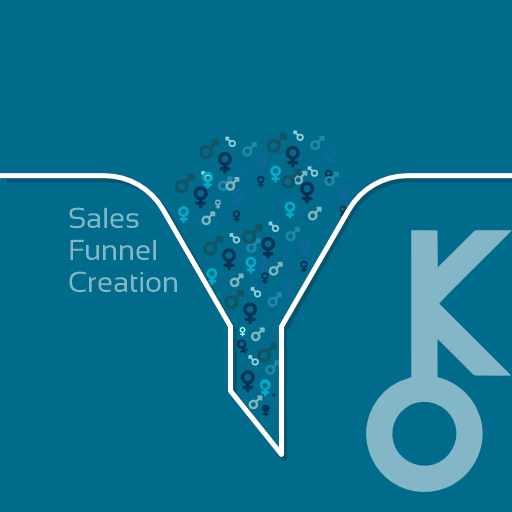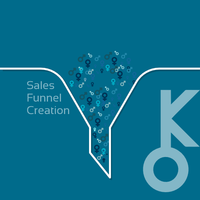Successful Sales Funnel Examples

In sales funnel creation, case studies play a crucial role in demonstrating the effectiveness and success of different sales funnels. A case study is an in-depth analysis and documentation of a real-life scenario or project that showcases how a particular sales funnel strategy has been implemented and its outcomes. By studying successful sales funnel examples through case studies, businesses can gain valuable insights, ideas, and inspiration to optimize their own sales funnels.
Benefits of Case Studies:
Case studies provide numerous benefits when it comes to analyzing successful sales funnels:
Real-World Perspective: By examining actual results achieved by businesses using specific sales funnel techniques, entrepreneurs and marketers receive practical knowledge on what works best in real-world settings.
Identification of Best Practices: Through thorough examination of successful case studies, one can identify the common elements or strategies that consistently lead to desirable outcomes in terms of conversion rates and revenue generation.
Learning from Mistakes: Analyzing both successes and failures helps uncover the mistakes made during the implementation process. Businesses can then learn from those mistakes to avoid potential pitfalls when creating their own sales funnels.
Inspiration for Creativity: Studying diverse case studies introduces innovative strategies that may have not previously been considered or explored within one's own business context.
Elements Explored Within Case Studies:
In order to truly understand successful sales funnel examples through case studies, several critical aspects are analyzed:
Target Audience Analysis: Understanding the target audience - such as demographics, interests, pain points - allows businesses to effectively tailor their marketing messages and offerings at each stage of the funnel.
Conversion Points Optimization: Determining where potential customers enter into the funnel (e.g., landing page), measuring engagement levels at various stages (e.g., email open rate), tracking conversion rates (e.g., purchase completion), and optimizing these conversion points for better results.
Content Creation: Examining the type of content (e.g., blog posts, videos, webinars) used within the sales funnel and how it is crafted and distributed to engage and educate prospects throughout their buyer's journey.
Lead Nurturing Strategies: Assessing methods employed to cultivate relationships with potential customers by delivering relevant information, providing value-added resources, and positioning businesses as trusted authorities in their respective industries.
Sales Funnel Automation: Identifying tools and technologies utilized to automate key tasks within the sales funnel, minimiz-ing manual effort while maintaining consistent communication with leads.
Key Takeaways from Successful Sales Funnels:
Studying successful case studies in sales funnel creation can reveal crucial insights that inform business strategy:
Simplicity Wins: Many effective sales funnels are structured with simplicity in mind; focusing on clear messaging, streamlined pathways, and minimal distractions ensures a seamless customer experience.
Testing & Optimization Are Essential : Recognizing that no two audiences or markets are identical emphasizes the importance of continuous testing different approaches within the funnel; this iterative process leads to improved conversion rates over time.
Personalization Drives Engagement: By tailoring content delivery based on individual preferences and behaviors (e.g., personalized email marketing), businesses can build stronger connections with potential buyers resulting in higher conversions.
Trust Building is Key: Establishing trust through testimonials, social proof, guarantees, or risk-free trials encourages prospects to move forward in the sales funnel confidently without hesitation or skepticism.
In conclusion, case studies provide valuable insights into successful sales funnels that have delivered tangible outcomes for businesses across various industries. Analyzing these case studies helps entrepreneurs understand best practices specific to their target audience while also inspiring creative approaches tailored for their own unique business context
Sponsored
Sponsored
Sponsored
Explore More:

The Impact of AI and Machine Learning
As technology continues to advance at a rapid pace, businesses are constantly looking...

Future of Sales Funnels
The future of sales funnels is an exciting and promising concept for businesses...

Lessons Learned from Failed Funnels
In the realm of sales funnel creation, case studies serve as valuable resources...

Case Studies in Sales Funnel Creation
In the world of sales and marketing, case studies play a crucial role...

Sales Funnel Recovery Strategies
Sales funnels are a critical component of any successful sales and marketing strategy....

Improving Funnel Efficiency
A sales funnel is a crucial component of any business's marketing strategy. It...

Identifying Funnel Leaks
A sales funnel is a systematic approach to guiding potential customers through a...

Sales Funnel Troubleshooting
Sales funnel troubleshooting is the process of identifying and resolving issues or bottlenecks...

Sales Funnel Tools and Software: Landing Page Builders
Sales funnels are essential in driving conversions and increasing revenue for businesses. To...

Sales Funnel Tools and Software: Email Marketing Tools
Sales funnel tools and software refer to the various technologies and platforms available...

Sales Funnel Tools and Software: CRM Software
Sales funnel tools are software programs or applications designed to help businesses track...

Sales Funnel Tools and Software
A sales funnel is a framework used by businesses to guide potential customers...

Measuring Sales Funnel Performance: Analytics and Reporting
Measuring sales funnel performance analytics and reporting is a crucial aspect of any...

Measuring Sales Funnel Performance: Sales Funnel Metrics
Measuring the performance of your sales funnel is crucial for understanding the effectiveness...

Measuring Sales Funnel Performance: Key Performance Indicators (KPIs)
Measuring the performance of a sales funnel is crucial for any business aiming...

Measuring Sales Funnel Performance
Sales funnel performance measurement is a crucial aspect of any business operation. It...